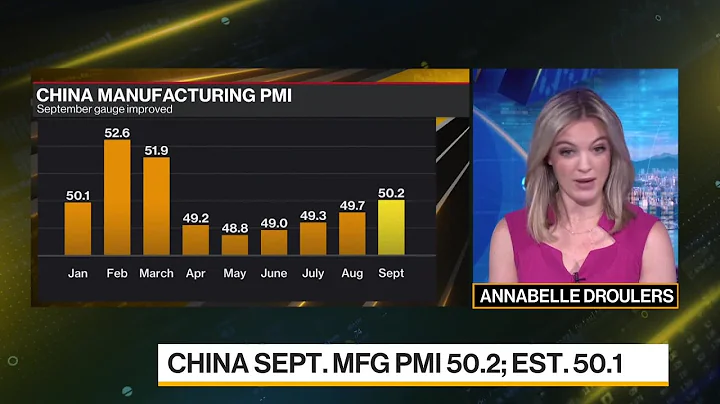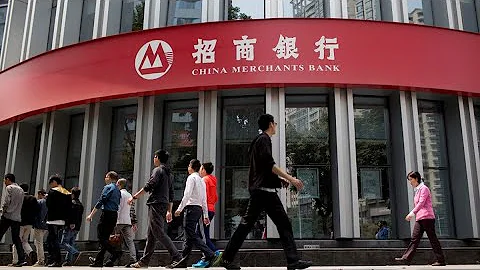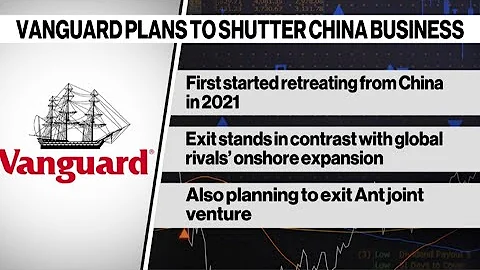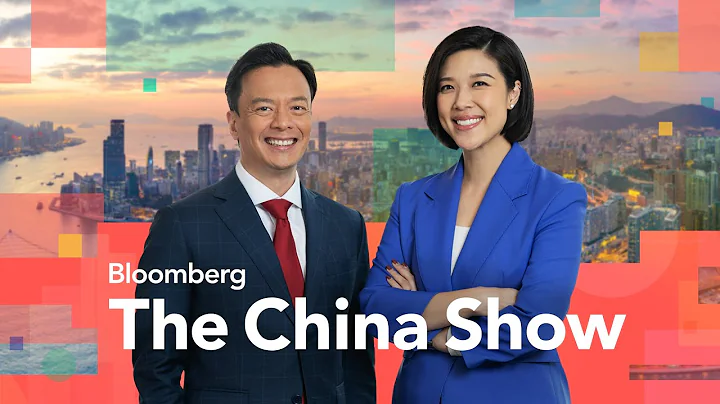[Introduction] China Merchants Group established China’s first merchant fleet in modern times, opened China’s first bank and first insurance company, and acted as a pioneer in China’s modern national shipping industry and many other modern economic fields. What is even more commendable is that in the past century and a half, the operations of China Merchants Group have never been interrupted, and it still maintains active vitality to this day.
China Merchants Group, founded in 1872, is the oldest government-supervised commercial enterprise in China that continues to this day. .
was born in the Steamship Merchants Bureau during the "seeking wealth" phase of the Westernization Movement in the late Qing Dynasty, and traveled through the late Qing Dynasty, the Republic of China and the Republic of China. Since its founding, this ancient enterprise has always been able to “do business” and shoulder its national mission at the same time.
In a nutshell, the mission of the birth of China Merchants Group is not only to "seek business opportunities" but also to "plan the national economy." When the "national economy" and "business conditions" are consistent, the "national economy" should be benefited by "seeking business conditions"; when the "national economy" and "business conditions" cannot be reconciled, the "national economy" should be given priority.
Li Hongzhang: "The most successful text in the forty years since he started Westernization"
In 1972, the Westernization Movement in the late Qing Dynasty was at the extreme of "seeking wealth". Li Hongzhang, the Minister of Beiyang, made every effort to organize an enterprise "officially supervised and commercially run" - the Steamship Investment Promotion Bureau. It is the predecessor of China Merchants Group.
At the Steamship Merchants Bureau, Li Hongzhang gradually gathered a group of well-known businessmen, entrepreneurs and thinkers who had made pioneering contributions in modern Chinese history. In 1873, he appointed Tang Tingshu as the first general manager, Xu Run and Sheng Xuanhuai as conference managers, and brothers Zhu Qiang, Sheng, Tang and Xu as members of the Investment Promotion Bureau. He also made a clear division of labor among the five people: Tang was in charge of the overall situation, Xu was in charge of shipping and stock raising, and Tang Xiang assisted; the Zhu brothers were in charge of water transportation; Sheng Xuanhuai assisted in other affairs and performed the special tasks assigned by Li Hongzhang, serving as Official watchdog. Among them, Tang and Xu are the first and second figures with real power.
From its preparation to its political fall in 1894, Li Hongzhang protected the China Merchants Bureau and sheltered it from wind and rain. He gave China Merchants two preferential policies: one was low-interest loans from the Qing court, and the other was the concession to transport water transport and other official property.

China Merchants Bureau Haixia Lun
Li Hongzhang once called the founding of China Merchants Bureau his "most successful writing in the forty years since he started Westernization." In 1875, China Merchants Bureau made a profit of more than 150,000 taels under the harsh situation of foreign businessmen joining forces to lower prices; in 1876, it made a profit of more than 340,000 taels; in 1877, after donating 30,000 taels, it made a profit of more than 420,000 taels; in 1879, Freight rates returned to normal and profits doubled to more than 760,000 taels. Li Hongzhang reported in 1881: "So far, Chinese businessmen have accounted for six-tenths of the Yangtze River business, and the Northern and Southern Oceans have also accounted for half." It was realized that "Hebei will create a trend for China" and "build the foundation of prosperity through business."
In the words of a leader of China Merchants Bureau: As a commercial organization, China Merchants Bureau was founded with the consideration of "seeking profit", but its establishment was not only for the benefit of one enterprise, but also for the benefit of the whole country; not only It is for temporary gain, but for eternal gain.
Whether during the Northern Expedition, the Anti-Japanese War, and later the Liberation War, as a national enterprise, China Merchants Group made great sacrifices for the "national economy". First, it cooperated with the army of the Republic of China, transporting officers, soldiers, arms and ammunition to support the Revolutionary Movement of 1911. Later, during the Anti-Japanese War, during the shipwreck and port blockage operation, it scuttled dozens of seagoing ships on several occasions and evacuated and transported countless supplies of various types.
According to statistics, during the Anti-Japanese War, due to the Japanese army's indiscriminate bombing and looting, as well as the shipwrecks in the port, China Merchants Group lost a total of 73 large and small ships, barges, and barges, totaling 89,000 tons, and its transportation capacity was destroyed by the Japanese army 2/ 3 or more. China Merchants Group's property losses and business losses amounted to US$311 million, and 69 employees sacrificed their lives for the country.
In 1949, under the influence of the underground party of the Communist Party of China, the general manager Hu Shiyuan, deputy general manager Huang Muzong, chief captain Ma Jiajun and other leading members of the Investment Promotion Bureau were determined to stay in Shanghai. Hu Shiyuan also personally planned with familiar crew members to save the Dajiang liner "Jiangxin" by creating artificial faults. In Hong Kong, at 8 o'clock in the morning on January 15, 1950, manager Tang Chuanchi and others led all employees of Hong Kong Merchants Group and more than 600 crew members of 13 China Merchants ships gathered in Hong Kong to declare an uprising and return to New China, which shocked the entire Hong Kong and even the world.

In 2012, the stamps for the 140th anniversary of the founding of China Merchants Group were issued.
Yuan Geng: Let the "Shekou Test Tube" derive the "Shekou Gene"
When today's China Merchants Group people talk about their own companies, they often mention one sentence: "The blood of China Merchants Group. Shekou Gene. "
Back in 1978, as one of the four major Chinese-funded institutions in Hong Kong, the headquarters of the Hong Kong Merchants Group was located in an inconspicuous old building at 15-16 Connaught Road West.
Tang Tingshu, the first generation leader of China Merchants Group, once said: "In world affairs, those who seek the long-term do not care about profits; it is difficult for founders to take credit." This was exactly the courage of Yuan Geng, the "leader" of China Merchants Group in the early days of reform and opening up, at that time. Proposed to establish an industrial zone in Shekou and become a pioneer in reform and opening up. "The Shekou Industrial Zone is 2.14 square kilometers, which is only a drop in the country's 9.6 million square kilometers. If the reform succeeds, it will be very meaningful for the country, but if it fails, it will not harm the overall situation." He said, "I hope people will regard Shekou as a place. A test tube, a test tube that injects beneficial external economic factors to reform the traditional economic system. "
When the Shekou Industrial Zone was just a paper plan, various letters of complaint had already flown to Beijing, accusing Yuan Geng of "doing it. "Restore capitalism", "connect with foreign countries", "run an independent kingdom" and "not do business properly". In order to find out the situation, the central ministries and commissions secretly sent working groups to Hong Kong and Shekou many times to investigate the "problems" between Yuan Geng and the leadership team of China Merchants Group.
Amid the turmoil, the top officials who were transferred to Shekou by Yuan Geng from the China Merchants Bureau resigned one after another. They were worried that they had made "political mistakes" and would not end well. In the end, Yuan Geng had to take charge of the entire Shekou Industrial Zone on his own, and traveled more frequently between Hong Kong and Shekou.
In the "Shekou Test Tube", the people of China Merchants Group are bold and forward-looking. Many of the systems we take for granted today started in Shekou - project bidding management methods, recruitment and employment systems, cadre appointment systems, and wage reform plans. Many of the systems implemented for the first time in China sprouted from here.
Many forms of modern business organizations also originated from here. In June 1982, China Nanshan Development Co., Ltd., composed of six Chinese and foreign companies, was formally established, of which China Merchants Group held 40% of the shares. This was the first joint-stock enterprise established in New China. On July 1, 1983, the Shekou Industrial Zone Law Firm officially opened for business. Its main business is to safeguard the legitimate rights and interests of Chinese and foreign enterprises in the Shekou Industrial Zone and to provide legal advice, consulting, agency and other legal services to Chinese and foreign persons. This is the first social law firm in China. On October 28, 1985, China Merchants Shekou Industrial Zone established the Shekou Industrial Zone Finance Company on the basis of the internal settlement center. This was the first enterprise internal settlement center and finance company in China. In 1987, China Merchants Group established China Merchants Bank, China's first joint-stock commercial bank wholly owned by corporate legal persons. In 1988, China's first joint-stock insurance company, Ping An Insurance, was born.
In a sense, Shekou has given the world confidence in China's reform and opening up. In 1992, when Yuan Geng left office, China Merchants' total assets had increased from 130 million to 20 billion. "Business conditions" and "national economy" are "interconnected and endlessly connected". In the context of China's rapid economic growth for more than 30 years, China Merchants Group is not what it used to be.

China Merchants Bureau
“Merchandising” Culture: The Business Secrets of the “Century-Old Store”
Today, this nearly 150-year-old enterprise is still full of vitality. It has 51 ports in 20 countries and regions around the world, has initially formed a relatively complete network of overseas ports, logistics, finance and parks, and has become an important participant and promoter of the national "Belt and Road" initiative. An enterprise and a country share weal and woe in the path of modernization, running in parallel for nearly a century and a half, which is rare in the world.
A ten-year-old enterprise relies on management, and a century-old enterprise relies on culture. Over a hundred years, a rich investment culture has been formed with "innovation" as the core, "advocating business" as the form, and "investment blood and Shekou genes" as the god. This is the operating secret of this "century-old store" mentioned by Li Jianhong, chairman of China Merchants Group, the current "head" of China Merchants Group.
Li Jianhong is a member of the new National Committee of the Chinese People's Political Consultative Conference. He holds a master's degree in business administration from the University of East London and a master's degree in economics and management from Jilin University, and is a senior economist. He said that looking back on the century-old history of China Merchants Group, reform and innovation have always been the source of power for development. In the future, China Merchants Group will continue to focus on marketization, accelerate the pace of state-owned capital investment pilots, improve state-owned capital investment and operational efficiency, and strive to build a world-class A world-class enterprise with international competitiveness. "In the last round of reform and opening up, China Merchants Group was the pioneer. In the new round of reform and opening up, I hope we can become the new pacesetter."
China Merchants Group started from the port and shipping industry. It was born from the sea and accompanied by the sea. From the beginning of its establishment, China Merchants Group began to "walk Get out and explore.
As early as 1873, the year after the founding of the Steamship Merchants Company, the first steamship "Eton" sailed to Kobe and Nagasaki in Japan. This was the first time a Chinese merchant ship sailed on an international route.
In 1879, the China Merchants Ship "Hezhong" made its maiden voyage to Honolulu, carrying more than 400 passengers. The following year, it sailed to North America and arrived in San Francisco, a city on the west coast of the United States, which became a major feat in the history of Chinese navigation. The Steamship Merchants Bureau has also established multiple branches in Japan, Singapore and other countries. If we open the nautical charts of China Merchants in the late Qing Dynasty, we will be surprised to find that China Merchants’ ocean routes are somewhat similar to today’s “One Belt, One Road” initiative.
In the new era, China Merchants Group’s “going global” strategy still focuses on ports and drives the development of related industries overseas. Especially since General Secretary Xi proposed the “One Belt, One Road” initiative in 2013, China Merchants Group has accelerated its overseas expansion.
As of the end of 2017, China Merchants has 52 ports in 20 countries and regions; the group's overseas enterprises have total assets of 724 billion yuan, operating income of 58.3 billion yuan, and total profits of 3.4 billion yuan. There are 193 overseas entities, distributed in 44 countries and regions on five continents are highly aligned with the “One Belt, One Road” initiative. How does
become a world-class company? In this regard, Li Jianhong often compares marathon running: "You must master the rhythm of running well to achieve a balance between speed and endurance." This means that while China Merchants Group continues to grow in size, it also needs to further enhance its competitiveness.
’s journey is far from over. Li Jianhong said in the article "Inheriting the Spirit of Yuan Geng and Promoting the Construction of World-class Enterprises": "Every generation has its own responsibilities, and every generation has its mission. Today is also a great era, an era of great transformation and great change."
For China Merchants Group, the best commemoration of history is to create a new history.
Source: "Literature and History Expo·People Magazine"
text | Wu Jiahe





















